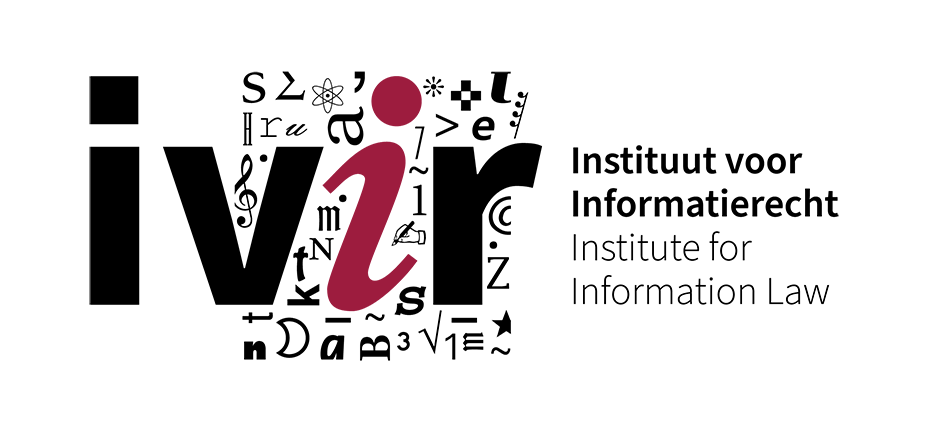Please note that the program is tentative and will be continuously updated.
Date: Wednesday, October 23, 2019
Venue: University of Amsterdam, Roeterseilandcampus
Please note that this event is invitation only, and will be under Chatham House rules.
08.30-09.00: Welcome
09.00-10.30: Academic Panel. Moderator Balazs Bodo (IViR, UvA):
- Friso Bostoen (KU Leuven): Corporate funding for academic research into antitrust law and technology
Last year, the leading Academic Society for Competition Law (ASCOLA) has adopted a Declaration of Ethics. Based on the Declaration, this papers seeks to distill a balanced method of signaling corporate funding. The scope of this inquiry is relatively limited, i.e. disclosures in the field of competition law. However, the findings are expected to be easily transposable to other branches of law related to information technology. Moreover, while disclosure requirements form the core of this inquiry, they will be given a place in the broader debate around corporate funding of academic research.
- Hans Radder (Department of Philosophy, VU Amsterdam): How to counter the commodification of academic research?
The paper is looking for answers to the following six questions: Which forms of commodification can be distinguished? How widespread and novel is the phenomenon of academic commodification? How should we theoretically assess the commodification of academic research? How to assess the actual practices of commodified research? Can the drawbacks of commodification be countered by regulation? What are the alternatives to commodified science?
- Jake Goldenfein (Cornell Tech), Sebastian Benthall (NYU), Daniel Griffin (UC Berkeley), Eran Toch (Tel Aviv University): Private Companies and Scholarly Infrastructure: The Question of Google Scholar
This paper takes a broader view on industry funding in academic research. Rather than looking at direct contributions, our paper investigates the effects of industry infrastructure in academic research. That includes evaluating what is new or different about Google Scholar from other search and bibliometric services; whether and how that infrastructure might have affected academic work; how we might conceptualize and evaluate the accountability of Google scholar, and what could make it more accountable to the scholarly community.
11.00-12.30: Roundtable: A multi-disciplinary dialogue on industry presence in academia:
Roundtable participants (alphabetical order): Lina Dencik, Seda Guerses, Natali Helberger (TBC), Stefania Milan, Linnet Taylor
The travel of money and people between the technology industry and academia has garnered increased attention as public debate about the societal implications of technological developments has become increasingly contentious. Questions about the nature of industry-academia relations have only become more pressing as the resources and power of ‘Big Tech’ have significantly increased whilst Higher Education has been subject to budget cuts, increased precarity and marketisation. In this context, Big Tech engagement in academic research and activity can and does reach far and wide – across disciplines and topics – positing both old and new questions about their ability to shape, influence and direct research agendas and scholarly debate. How is or should this relationship be managed? How is it different across disciplines and topics? What conflicts of interests exist? What are adequate responses to such conflicts?
At this roundtable we will bring together different disciplinary perspectives to highlight the myriad of issues and negotiations that have emerged with the advent of Big Tech and its on-going relationship with academia. This will include perspectives from Computer Science, and a focus on conflict of interests in relation to not only funding, but also revolving doors, Computer Science scholars moving to companies whilst maintaining reduced contracts at universities, industry researchers present in conference Programme Committees, and industry interference into the reporting of research findings. It will also include perspectives from the field of Philosophy and Law, particularly in relation to data ethics and fairness in AI, reflecting on conference sponsorship, transparency around institutional and project funding, and the role of university budget cuts in social sciences in favour of tech research. Finally, the roundtable will bring in perspectives from Media Studies, focusing on questions of state-subsidy and industry acquisition of research outputs, Big Tech monopoly in creative innovation, and the possibility for academia to nurture alternative media economies.
12.30-14.00: Lunch
14.00-15.30: Funders’ panel:
Lino Paula (Head of Sector Social Sciences, European Research Council Executive Agency), Alla García (Senior Program Specialist, Open Society Initiative for Europe), John Grant (Civil Liberties Engineer, Palantir Technologies), Niek Brunsveld (Senior Policy Adviser, Research & Innovation, and Lecturer in Ethics, University of Amsterdam). Moderator: Mireille van Eechoud (IViR, UvA)
This panel invites public, private-nonprofit and corporate funders active in the information law and policy research domain to discuss the issue from the funders’ perspective, and reflect upon how the current funding situation looks like, what are the short and long term threats and opportunities, and ow they see their own, and each other’s roles, responsibilities. In particular, we’ll discuss the following questions:
a) The role of different organisations in the funding landscape.
b) How funders decide which research(ers) to fund.
c) How funders ensure academic independence.
d) Experiences and managing of politicized environments and (negative) public perceptions on research funded.
e) Expectations on the future funding landscape for Information law & policy research (challenges, opportunities).
16.00 – 17.30: Institutional Funding in Europe – Good Practices:
Organizers: Prof. Dr. Wolfgang Schulz, Helene von Schwichow (Alexander von Humboldt Institute for Internet and Society, European Hub of the Network of Centers)
The European Hub of the Network of Centers invites all participants to share their experiences with institutional funding. In this workshop, we aim to take a closer look on the advantages and disadvantages of institutional and particularly government funding – and the strings attached. The broad variety of the EU-Hub centers regarding size, focus and governance structure will thereby serve as a rich basis for discussions with diverse perspectives. The session is planned as an open workshop format in which all attendees are welcome to participate. The outcome of the session will be a paper that gives an overview of good practices and tools in terms of institutional funding in Europe.

